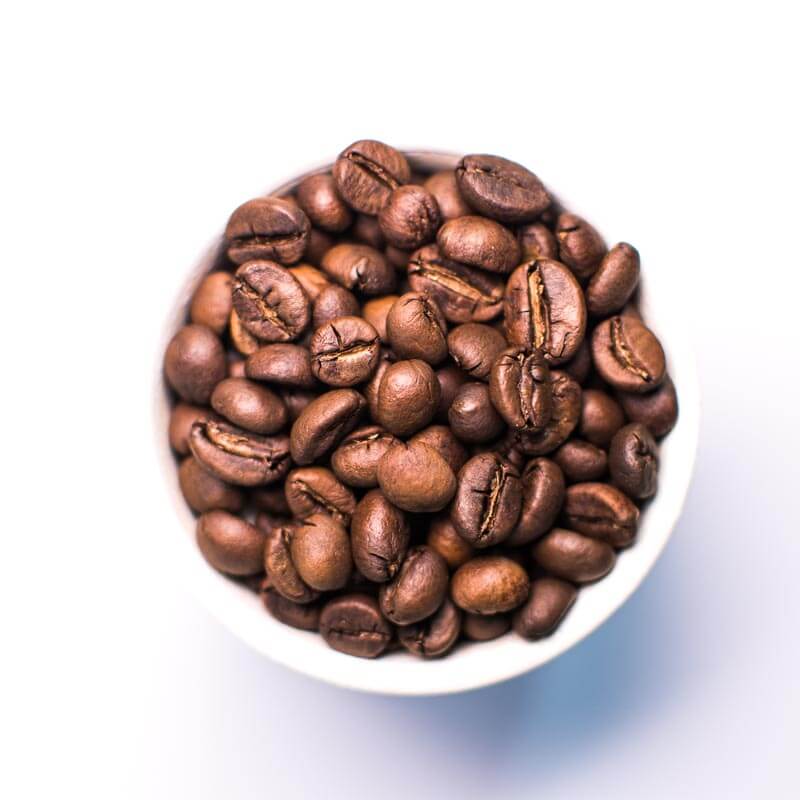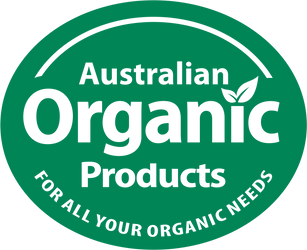
Beyond Your Daily Caffeine Fix: What Makes Organic Coffee Better?
If you're a coffee lover, you may have heard the term "organic coffee" thrown around, but what exactly does it mean? Organic coffee is grown and processed without the use of synthetic fertilisers, pesticides, or herbicides. Instead, organic farmers rely on natural fertilisers and pest control methods to maintain the health of the soil and the coffee plants.
But what makes organic coffee better than conventional coffee?
Organic Coffee: A Better Choice for the Environment
Organic coffee is grown without the use of synthetic fertilisers and pesticides, making it a better choice for the environment. Traditional coffee farming methods often involve the use of chemicals that can harm the soil, waterways, and wildlife. Organic coffee farming, on the other hand, focuses on sustainable practices that protect the ecosystem. Organic coffee farmers use natural methods to nourish the soil, such as composting and cover cropping, which helps to improve soil health and prevent erosion. By choosing organic coffee, you are supporting sustainable farming practices that are better for the planet.
Higher Quality Coffee with a Complex Taste Profile
Organic coffee beans are often of higher quality and have a more complex taste profile. Organic farmers prioritise the health of the soil and the coffee plants, which results in coffee beans that are richer in flavour. Because organic coffee farmers use natural methods to nourish the soil, the coffee plants grow more slowly, allowing the beans to develop more nuanced flavours. Organic coffee also tends to be shade-grown, which means the coffee plants are grown under a canopy of trees. This method helps to preserve the natural ecosystem and biodiversity of the area where the coffee is grown, resulting in a better-tasting coffee that is better for the environment.
Supporting Sustainable and Fair Trade Practices
Choosing organic coffee also means supporting sustainable and fair trade practices. Many organic coffee farmers are small-scale farmers who rely on coffee as their main source of income. By choosing organic coffee, you are supporting farmers who prioritise sustainable practices and fair trade policies. Organic coffee certification also ensures that farmers receive a fair price for their coffee and that their labour practices meet ethical standards.
Brewing the Perfect Cup of Organic Coffee
Looking to take your morning coffee routine to the next level? Start by choosing organic coffee beans for a more sustainable and flavorful cup of joe. But how do you brew the perfect cup of organic coffee? Here are some tips and tricks to get you started:
- Start with fresh, whole-bean coffee. The key to great coffee is using fresh beans that have been roasted recently. Grind the beans just before brewing for the best flavour.
- Use filtered water. To avoid any unwanted flavours or odours in your coffee, use filtered water for brewing.
- Measure your coffee. A general rule of thumb is to use 1-2 tablespoons of coffee per 6 ounces of water, but adjust according to your taste preference.
- Choose the right brewing method. From drip coffee makers to French presses, there are a variety of brewing methods to choose from. Experiment with different methods to find the one that suits your taste.
- Pay attention to water temperature. Water that is too hot can lead to bitter coffee, while water that is too cool can result in weak coffee. The ideal water temperature for brewing coffee is between 90.5°C and 96.1°C.
- Drink your coffee within 30 minutes of brewing. Coffee loses its flavour and aroma as it sits, so try to drink it within 30 minutes of brewing.
By following these tips and choosing high-quality organic coffee brands, you can enjoy a delicious and sustainable cup of coffee every day. So go ahead, brew yourself the perfect cup of organic coffee and elevate your morning routine!
Please take some time to visit our categories like Montville coffee and more.
Try the Organic Coffee Brands We Stock
Before You Speak
Before You Speak is an Australian brand that specialises in organic, fair-trade coffee blends. Their flagship product, the High-Performance Coffee, contains a blend of premium Colombian coffee beans and superfood ingredients like MCT oil, turmeric, and Siberian ginseng. This coffee is designed to boost energy and focus, making it the perfect morning pick-me-up.
Bonvit
Bonvit is an Australian brand that has been producing organic coffee for over 20 years. Their coffee beans are sourced from certified organic farms in Papua New Guinea, and the coffee is roasted locally in Australia. Bonvit offers a variety of organic coffee blends, including decaf options.
Brain & Brawn Collagen Keto Coffee
If you're looking for a coffee that packs a nutritional punch, Brain & Brawn Collagen Keto Coffee is worth checking out. This organic coffee is blended with collagen protein and MCT oil, making it a great choice for those following a keto or low-carb diet. Plus, the added collagen can help support healthy hair, skin, and nails.
Clipper
Clipper is a UK-based brand that offers a wide range of organic coffee blends, including Fairtrade options. Their coffee beans are sourced from smallholder farmers around the world, and the coffee is roasted in the UK. Clipper's organic coffee is smooth and full-bodied, with notes of chocolate and caramel.
Planet Organic
Planet Organic is an Australian brand that specialises in organic and biodynamic products. Their organic coffee beans are sourced from small-scale farms in Central and South America, and the coffee is roasted in Australia. Planet Organic offers a variety of organic coffee blends, including decaf options and Fairtrade-certified coffee.
Tonika
Tonika is an Australian brand that offers a range of organic coffee blends, including single-origin options. Their coffee beans are sourced from small-scale farms in Colombia, Brazil, and Ethiopia, and the coffee is roasted in Australia. Tonika's organic coffee is smooth and full-bodied, with notes of fruit and caramel.
In conclusion, choosing organic coffee is not only better for the environment, but it also results in a higher quality and more flavorful cup of coffee. By supporting sustainable and fair trade practices, you can feel good about your coffee purchase and know that you are making a positive impact on the world.
When brewing your organic coffee, remember to start with fresh, whole beans, use filtered water, measure your coffee, and choose the right brewing method. With so many high-quality organic coffee brands to choose from, you’re sure to find a delicious and sustainable cup of coffee that suits your taste preferences. So why settle for a mediocre cup of coffee when you can elevate your morning routine with organic coffee?

Leave a comment